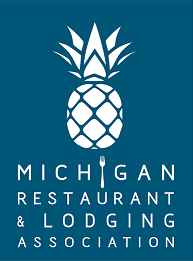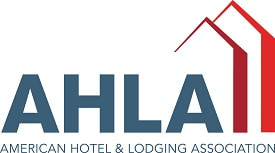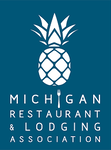Ask the Experts: Protecting Employees + Compliance |

By: Matthew S. Disbrow
Q: As I reopen my hospitality business, what must I do to protect employees and comply with state COVID-19 pandemic requirements?
A: It is an extreme understatement to say that the COVID-19 pandemic has been a challenge for the hospitality industry. This continues to be true as states struggle to reopen bars, restaurants, hotels, and motels, only to partially reclose when infection rates spike. With these challenges in mind, the state of Michigan has implemented several rules to protect hospitality workers during the reopening process. These rules were compiled from several sources including the Centers for Disease Control (CDC), the Occupational Safety and Health Administration (OSHA), and Governor Whitmer’s executive orders. While some of these rules are outlined below, the key takeaway should be that all employers are required to protect employees from possible contagion while they interact with guests and others.
Requirements for all Michigan Businesses with In-Person Operations
There are several requirements that apply to all Michigan businesses with in-person operations. Among other things, all in-person businesses must:
Daily screenings and cleanliness are very important. In addition to self-screening protocols, employers are permitted to conduct pre-shift temperature screenings at the workplace. Additionally, facility cleaning and disinfection schedules should be increased to reduce possible viral contamination, with a focus on high touch areas and shared equipment. Cleaning supplies must be made available to employees upon entry, and at worksites throughout the facility. Employers also must give employees sufficient time to wash hands frequently or use hand sanitizer. Special cleaning and disinfection protocols must be developed in the event an employee or guest tests positive for COVID-19.
Q: As I reopen my hospitality business, what must I do to protect employees and comply with state COVID-19 pandemic requirements?
A: It is an extreme understatement to say that the COVID-19 pandemic has been a challenge for the hospitality industry. This continues to be true as states struggle to reopen bars, restaurants, hotels, and motels, only to partially reclose when infection rates spike. With these challenges in mind, the state of Michigan has implemented several rules to protect hospitality workers during the reopening process. These rules were compiled from several sources including the Centers for Disease Control (CDC), the Occupational Safety and Health Administration (OSHA), and Governor Whitmer’s executive orders. While some of these rules are outlined below, the key takeaway should be that all employers are required to protect employees from possible contagion while they interact with guests and others.
Requirements for all Michigan Businesses with In-Person Operations
There are several requirements that apply to all Michigan businesses with in-person operations. Among other things, all in-person businesses must:
- Develop a COVID-19 preparedness and response plan
- Designate COVID-19 site supervisor
- Provide employees with COVID-19 training
- Conduct daily entry self-screening protocols
- Maintain six feet social distancing
- Provide non-medical face coverings
- Update cleaning and disinfection protocols
- Develop response and notification plans for confirmed cases
- Restrict non-essential business travel
- Encourage use of PPE and hand sanitizers
- Adopt additional controls as necessary
Daily screenings and cleanliness are very important. In addition to self-screening protocols, employers are permitted to conduct pre-shift temperature screenings at the workplace. Additionally, facility cleaning and disinfection schedules should be increased to reduce possible viral contamination, with a focus on high touch areas and shared equipment. Cleaning supplies must be made available to employees upon entry, and at worksites throughout the facility. Employers also must give employees sufficient time to wash hands frequently or use hand sanitizer. Special cleaning and disinfection protocols must be developed in the event an employee or guest tests positive for COVID-19.

Special Requirements for Restaurants and Bars
In addition to the general requirements, there are special rules for restaurant and bar operators, including the following:
Other employee safety requirements include requiring employees to wear face coverings and gloves in the kitchen area when handling food (consistent with guidelines from the Food and Drug Administration (FDA)), requiring hosts, servers, and staff to wear face coverings in the dining area, and training employees on the proper use and maintenance of face coverings. Employers should also install physical barriers (such as sneeze guards and partitions) at cash registers, bars, host stands, and other areas where maintaining physical distance of six feet is difficult. Where possible, limit the number of employees in shared spaces (such as kitchens, break rooms, and offices) to maintain at least a six-foot distance between employees. Restaurants and bars must also limit shared items for customers and employees (e.g., condiments, menus) and clean high-contact areas after each customer (e.g., tables, chairs, menus, payment tools, condiments).
Other Limitations on Lodging Businesses
The rules continue to evolve as the virus continues its spread. However, at the time of publication of this article, hotels and motels are allowed to remain open, but may only engage in activities that provide shelter and basic needs (such as carry-out/delivery/room-service food). Moreover, lodging establishments must limit guest-to-guest, guest-to-staff, and staff-to-staff interactions as much as possible, in addition to complying with other mitigation measures. In-house amenities such as gyms, pools, spas, entertainment faculties, and meetings rooms cannot be provided.
These are just some of the requirements to consider when reopening your business. While not a complete list, this provides an overview of some of the most significant guidelines. It is also important to note that these pandemic response guidelines regularly undergo changes. All employers should monitor governmental announcements and guideline amendments to ensure they are, and remain, in compliance at all times.
In addition to the general requirements, there are special rules for restaurant and bar operators, including the following:
- Limiting capacity of seating (check the limit currently applicable to your area).
- Requiring six feet of separation between parties or groups at different tables or bar tops.
- Closing waiting areas (ask customers to wait in cars for a call when their table is ready).
- Closing self-serve food or drink options (e.g. buffets, salad bars, drink stations).
- Creating materials for customers (e.g., signs, pamphlets) to inform them of changes to restaurant or bar practices and explaining the precautions that are being taken to prevent infection.
- Postings signs at entrances informing customers not to enter if they are or have recently been sick.
- Posting signs instructing customers to wear face coverings until they get to their table.
Other employee safety requirements include requiring employees to wear face coverings and gloves in the kitchen area when handling food (consistent with guidelines from the Food and Drug Administration (FDA)), requiring hosts, servers, and staff to wear face coverings in the dining area, and training employees on the proper use and maintenance of face coverings. Employers should also install physical barriers (such as sneeze guards and partitions) at cash registers, bars, host stands, and other areas where maintaining physical distance of six feet is difficult. Where possible, limit the number of employees in shared spaces (such as kitchens, break rooms, and offices) to maintain at least a six-foot distance between employees. Restaurants and bars must also limit shared items for customers and employees (e.g., condiments, menus) and clean high-contact areas after each customer (e.g., tables, chairs, menus, payment tools, condiments).
Other Limitations on Lodging Businesses
The rules continue to evolve as the virus continues its spread. However, at the time of publication of this article, hotels and motels are allowed to remain open, but may only engage in activities that provide shelter and basic needs (such as carry-out/delivery/room-service food). Moreover, lodging establishments must limit guest-to-guest, guest-to-staff, and staff-to-staff interactions as much as possible, in addition to complying with other mitigation measures. In-house amenities such as gyms, pools, spas, entertainment faculties, and meetings rooms cannot be provided.
These are just some of the requirements to consider when reopening your business. While not a complete list, this provides an overview of some of the most significant guidelines. It is also important to note that these pandemic response guidelines regularly undergo changes. All employers should monitor governmental announcements and guideline amendments to ensure they are, and remain, in compliance at all times.




